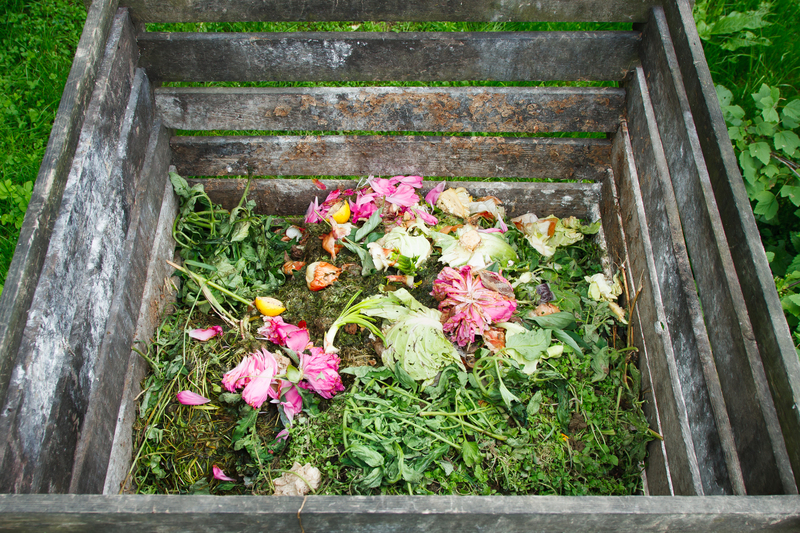Best Practices for Efficient Skip Hire: Top Tips for Smart Waste Removal
Are you facing a renovation, garden clear-out, or construction project and looking for ways to manage waste effectively? Efficient skip hire can help you tackle rubbish disposal with the least hassle and expense. Whether you're a homeowner, business owner, or contractor, understanding the best practices for skip hire can save you time, money, and effort--while contributing to a cleaner, greener environment.
In this article, we guide you through the essential tips for hiring a skip efficiently. We'll cover everything from choosing the right skip, optimizing space, legal considerations, eco-friendly disposal, to cost-efficiency, and much more. So, let's dive into the ultimate guide for smart skip rental!
Why Opt for Skip Hire?
Skip hire is a popular choice for waste management thanks to its convenience, flexibility, and eco-friendly potential. Here are some reasons why hiring a skip is a fantastic solution for your waste disposal needs:
- Time-Saving: One centralized container for all your waste reduces repeated trips to the landfill.
- Cost-Efficient: Hiring a skip is often much cheaper than relying on alternative removal methods.
- Versatile: Skips come in a range of sizes for both domestic and commercial projects.
- Environmentally Responsible: Reputable skip companies recycle most waste, lowering your environmental impact.

Best Practices for Efficient Skip Hire
For the best results, it's not just about hiring a skip, but using it effectively. Below are key best practices and tips to ensure your skip hire experience is smooth, efficient, and compliant with local regulations.
1. Assess Your Waste Properly
Before you hire a skip, take the time to estimate your waste volume and types. Incorrect estimations often lead to overpaying for unused space or underestimating your waste, causing costly delays.
- Estimate the volume by visually comparing your rubbish with standard skip sizes.
- Categorize waste into general rubbish, recyclables, and prohibited materials such as asbestos or hazardous chemicals.
- Consider bulky items--these may require a larger skip or be subject to additional restrictions.
Tip: Many skip hire websites feature volume calculators or size guides to help you make the right choice.
2. Choose the Right Skip Size and Type
Selecting the appropriate skip size is a vital step for efficient and affordable skip rental. Skips come in a variety of shapes and capacities, ranging from small mini-skips (2-3 yards) for minor DIY jobs to large roll-on roll-off skips (20-40 yards) for construction sites.
- Mini Skips: Ideal for small domestic clear-outs, garden waste, or minor renovations.
- Midi Skips: Perfect for bathroom or kitchen refurbishments.
- Builder's Skips: The most popular choice for large household or building projects.
- Large Skips: Suited for commercial projects and bulky, heavy waste.
*It's more cost-effective to hire one larger skip than two smaller ones!* Avoid overfilling, as this can result in additional fees or refused collection.
3. Understand What You Can and Cannot Dispose of
To stay within legal bounds and avoid fines or additional charges, be aware of the restrictions on skip content. Reputable skip hire companies provide clear lists of prohibited items, which often include:
- Asbestos
- Batteries
- Electrical appliances and electronics (WEEE waste)
- Fluorescent bulbs and tubes
- Paint tins, solvents, and chemicals
- Gas cylinders
- Tyres
- Medical waste
Tip: Always ask your skip company for details on restricted materials. Trying to hide prohibited items may result in significant fines.
4. Plan Skip Placement for Accessibility and Compliance
Where you place your skip matters! Ensure it's positioned for easy access while complying with local regulations, especially if the skip will be on a public road.
- Place skips on private property whenever possible to avoid permit complications.
- If you must place your skip on a public road, arrange a skip hire permit with your skip provider or local authority. This usually takes several days to process.
- Make sure the skip does not block driveways, pavements, fire hydrants, or emergency exits.
- Consider access for collection vehicles; ensure no parked cars or overhanging branches obstruct the area.
- If your skip will be delivered via lorry, ensure your driveway or access road is stable enough to handle heavy vehicles.
5. Maximise the Use of Your Skip Space
An often overlooked aspect of efficient skip hire is how you load your waste into the bin. Improper loading wastes space and could even breach health and safety rules.
- Break down items: Dismantle furniture and cut branches to fit more into the skip.
- Place flat items first: Doors, shelves, or sheet materials should go at the bottom.
- Distribute weight evenly: Spread heavier items on the base, and fill gaps with lighter rubbish.
- Avoid air pockets: Fill spaces with loose items such as bags of rubbish, soil, or small waste.
- Don't overfill: Never fill above the "level load" line to avoid penalties and unsafe lifting.
Efficient loading = cost savings and a safer removal service!
6. Opt for an Environmentally Friendly Skip Hire Company
Responsible waste management is vital. When choosing a skip rental provider, consider their eco-credentials. Does the company recycle or sort waste effectively?
- Choose a skip hire service that recycles the highest possible percentage of waste--ideally over 90%.
- Look for certifications such as ISO 14001 (Environmental Management) or Waste Carrier licenses.
- Avoid companies that offer "cheaper" unlicensed services. These may resort to fly-tipping, making you legally liable.
*Did you know?* Reputable skip providers sort collected waste at licensed recycling centers, maximizing landfill diversion.
7. Compare Skip Hire Prices and Services
Like any service, it pays to shop around. Compare skip hire prices, but also check what's included:
- Skip size options and availability
- Delivery and collection charges
- Length of hire period
- Permit application services (if required)
- Customer support and responsiveness
Always read reviews and check for hidden costs such as surcharges for certain waste types or extra days.
8. Be Aware of Local Regulations and Permits
Different councils and regions have unique rules about skip hire, especially for skips on public land. Ensure you comply to avoid fines or delays.
- Apply early for any necessary skip hire permits.
- Adhere to time restrictions--some areas limit how long a skip can remain on the street.
- Follow regulations for signage, lights, or covers (these may be required at night or in busy public areas).
Check the local authority's website or consult your skip provider for the latest regulations.
9. Organize Your Project Around Skip Hire Timelines
Timing can significantly affect the efficiency of skip hire. Proper scheduling helps you avoid rushed jobs or late fees.
- Book your skip in advance, particularly during busy seasons such as spring and summer.
- Ensure your project timeline aligns with the hire period. Most companies provide standard 7-14 day rental windows.
- Plan to complete all waste disposal before your skip collection date.
- Communicate with the provider about potential extensions (additional charges may apply).
Common Mistakes to Avoid in Skip Hire
- Overfilling the skip - This can make skip removal unsafe and trigger fines or refusal.
- Disposing of prohibited items - Always check the policy to avoid costly penalties.
- Poor skip placement - Incorrect location can block access or breach local regulations.
- Underestimating waste volume - Too small a skip results in extra collections and higher costs.
- Choosing unlicensed companies - This risks illegal dumping and potential legal action against you.

Frequently Asked Questions about Efficient Skip Hire
What is the most economical way to use a skip?
The best value skip hire is achieved by carefully estimating waste, picking the correct skip size, loading efficiently, and comparing reputable providers. Never pay for more space than you need.
How do I know which skip size to hire?
Consult skip size guides, use online calculators, or ask the provider for advice. If in doubt, slightly over-estimate--overfilling is not allowed, but space can always be left unused.
Can I mix all types of waste in a skip?
Most general skips accept mixed general waste, but specific skips may be required for plasterboard, soil & hardcore, or hazardous materials. Always verify with your provider.
How long can I keep a skip?
Standard skip hire periods are 7 to 14 days. Longer hires may incur additional charges--discuss this with your provider.
Will my waste be recycled?
Responsible skip hire firms sort and recycle as much as possible--usually over 80%. Always choose an environmentally certified provider for peace of mind.
Conclusion: Efficient Skip Hire Is All in the Planning
Efficient skip hire isn't just about making a booking--it requires planning, choosing wisely, loading skilfully, and understanding local laws. By following industry best practices, you'll enjoy a stress-free rubbish removal process that saves money and supports sustainability.
Ready to hire a skip? Take a proactive approach with the tips above, select a reputable provider, and ensure your project stays on track!
Key Takeaways for Efficient Skip Hire
- Assess waste volume and type before hiring.
- Pick the right skip size--avoid under or overestimation.
- Understand waste restrictions and follow local regulations.
- Maximize skip space with smart loading techniques.
- Hire from licensed, eco-friendly providers.
- Plan project timelines around skip hire dates.
For more information or to receive a quote for your next waste removal project, reach out to a trusted skip hire company--make efficient skip hire work for you!